DGB Group, a leader in transformative initiatives, is currently spearheading an innovative project in Kenya—the Stoves for Schools: improving health with children and preventing deforestation project. This project focuses on developing efficient cookstove technology for educational institutions, aiming to address challenges faced by these facilities while enhancing children's health by improving air quality and reducing health risks. The Stoves for Schools initiative utilises the same advanced thermal technology as the Hongera Energy Efficient Cookstoves Project to construct large, energy-efficient, fixed cookstoves on-site.
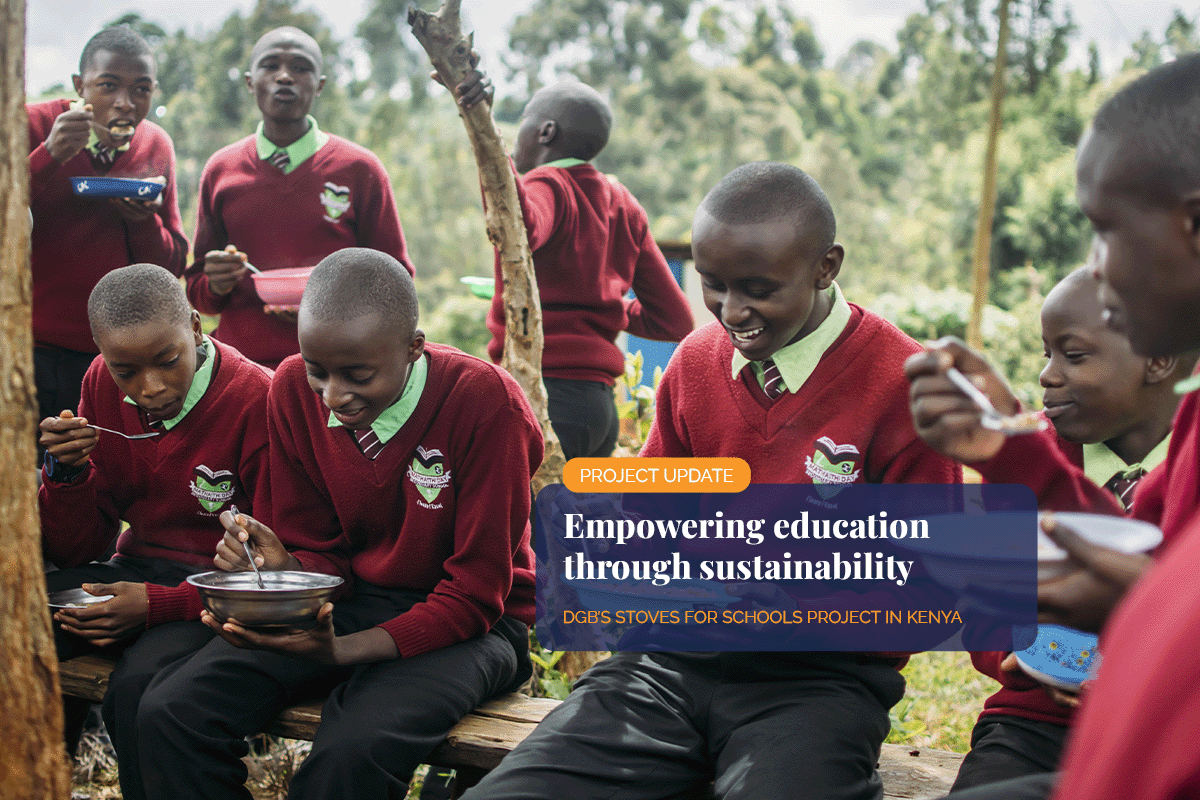 Pupils from Mathaithi Day Secondary school in Nyeri County having lunch - DGB’s Stoves for Schools project in Kenya.
Pupils from Mathaithi Day Secondary school in Nyeri County having lunch - DGB’s Stoves for Schools project in Kenya.
The project is still in its initial phase, with four cookstoves successfully installed in four different schools as part of a pilot programme. These installations serve as a test to gather feedback on the cookstoves' performance compared to the old baseline cookstoves used in the schools.
The four pilot cookstoves were built directly on-site at the schools' kitchens during the installation process. The team gathered the necessary materials and spent two to three days constructing the cookstoves. Following the construction, a drying period of around ten days was necessary before the cookstoves could be used. A comprehensive scientific test to evaluate the cookstoves' efficiency is to be conducted, with the team relying on observations and reports from the four pilot schools. A thorough kitchen performance test is scheduled to provide accurate data on the cookstoves' effectiveness in the upcoming weeks.
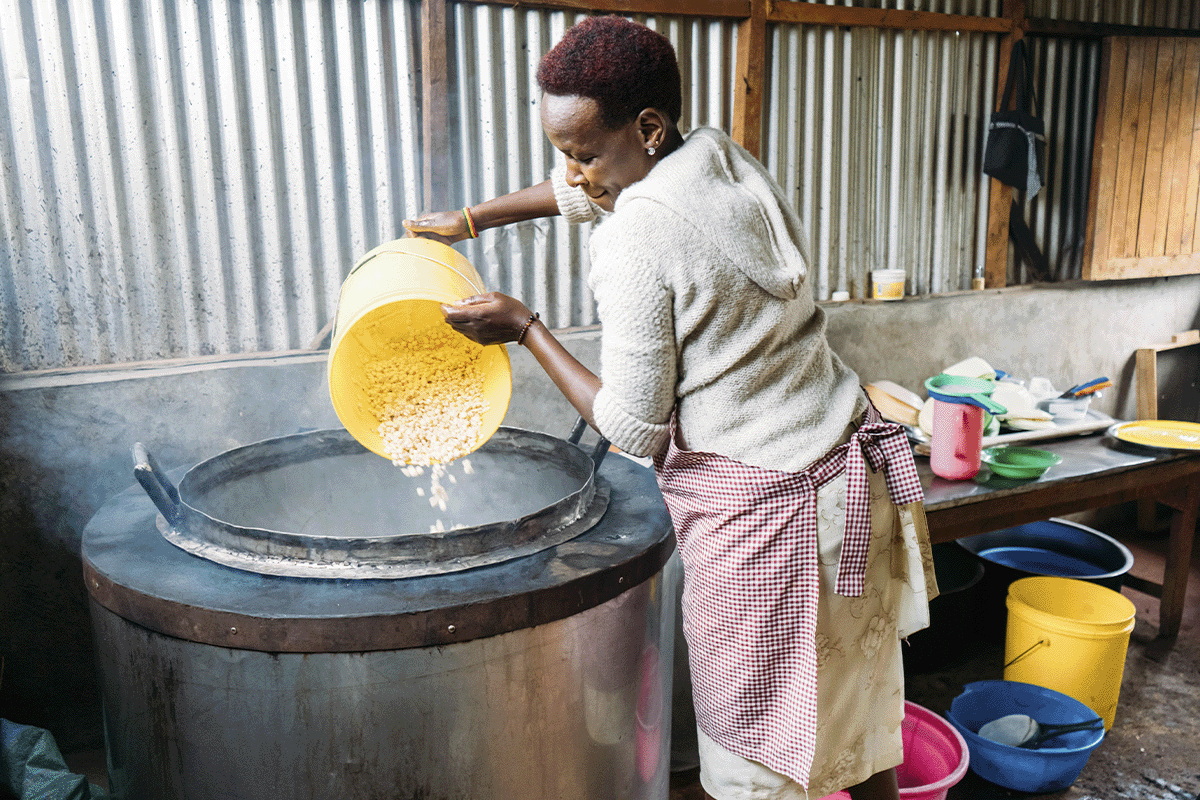 Woman cooking lunch for pupils using DGB’s cookstove - DGB’s Stoves for Schools project in Kenya.
Woman cooking lunch for pupils using DGB’s cookstove - DGB’s Stoves for Schools project in Kenya.
The cookstoves' lifespan is estimated to last approximately 7.5 years, with plans to renew or replace them after 7 years. Regular repairs and maintenance will also be performed throughout the project's duration.
Explore DGB’s carbon removal and biodiversity projects
The project’s project manager, James Wachieni, highlights the positive relationship between the schools, communities, and the project team. Schools and communities have expressed enthusiasm and appreciation for the cookstoves, reporting significant savings in both firewood usage and cooking time. The improved cookstoves also contribute to cleaner kitchens and better health for the cooks, as there is reduced smoke emission.
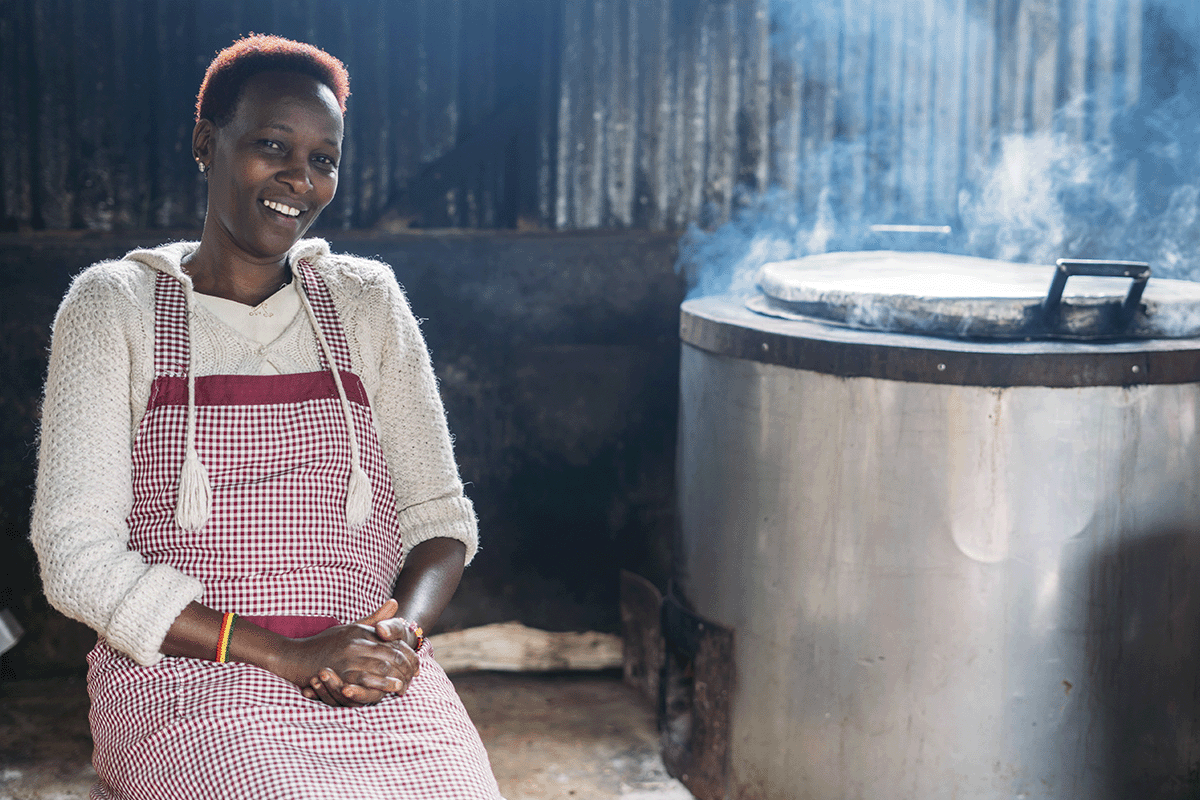 Woman sitting next to the cookstove in a school kitchen - DGB’s Stoves for Schools project in Kenya.
Woman sitting next to the cookstove in a school kitchen - DGB’s Stoves for Schools project in Kenya.
As word spreads about the project's pilot success, excitement for the project is growing, and more schools have expressed interest in participating. A total of 460 schools so far have expressed interest in the cookstove installations. Most schools targeted by the project have an average enrolment of around 500 students. With the interest of 460 schools, that represents more than 100,000 children. The goal is to reach even more schools beyond those who expressed initial interest.
Plans are outlined to train additional local artisans, forming multiple teams that could install cookstoves in different regions. Although it might not be possible to reach all schools simultaneously, those that had expressed interest would be prioritised, with consideration given to urgent needs and poor traditional cookstove conditions in some schools.
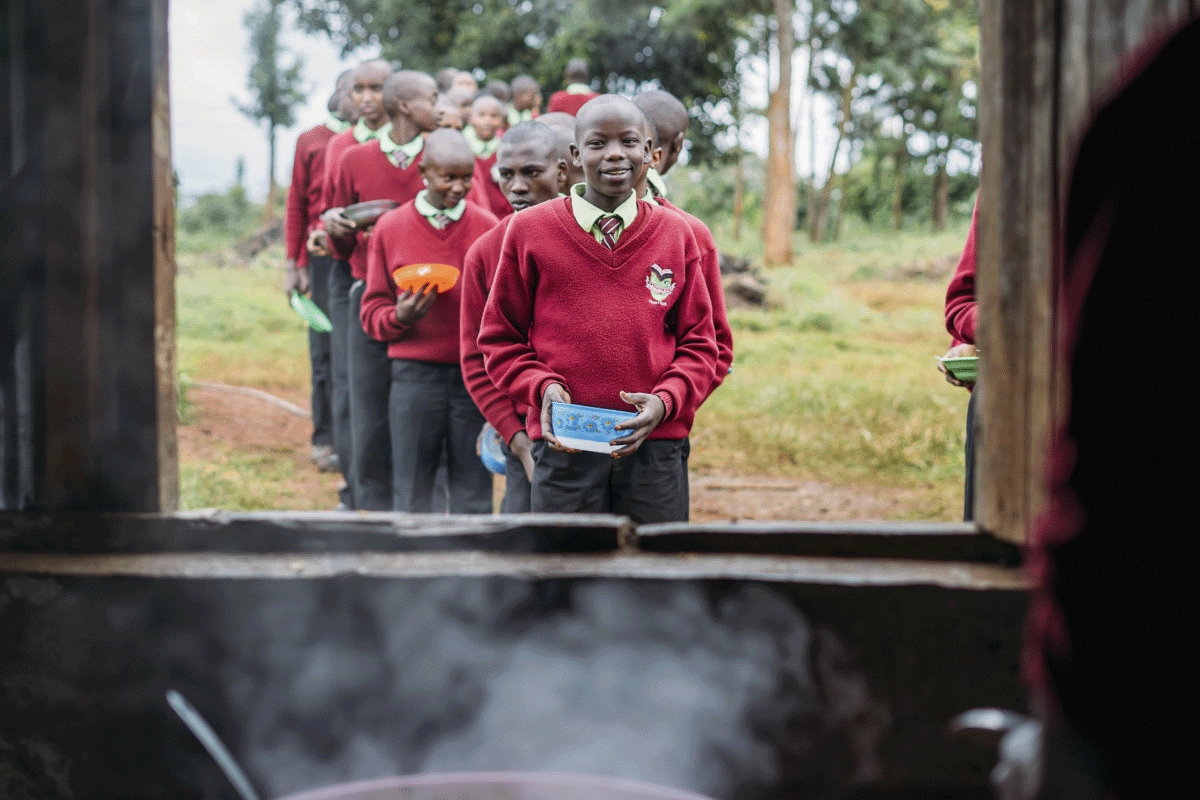 View from a kitchen window of pupils waiting in line - DGB’s Stoves for Schools project in Kenya.
View from a kitchen window of pupils waiting in line - DGB’s Stoves for Schools project in Kenya.
James Wachieni emphasises the differences between the project’s cookstoves and typical or traditional cookstoves, highlighting the financial savings, reduced pressure on forests, improved health and cleanliness, and ease of maintenance associated with the school cookstoves. Additionally, the positive impact extends beyond the schools as students share information about the cookstoves with their families, and thus DGB’s projects facilitate and strengthen communities at multiple levels.
Read more: Cookstove manufacturing, distribution, and monitoring in Kenya
Working at the project sites, the schools proved to be an exciting experience for both the team and the children. The team engaged the children in various activities, involving them in tasks related to construction and kitchen preparation. The children showed curiosity, asked questions, and interacted with the team members. They also participated in additional activities such as tree planting and African dances, further fostering their involvement and spreading awareness about the cookstoves.
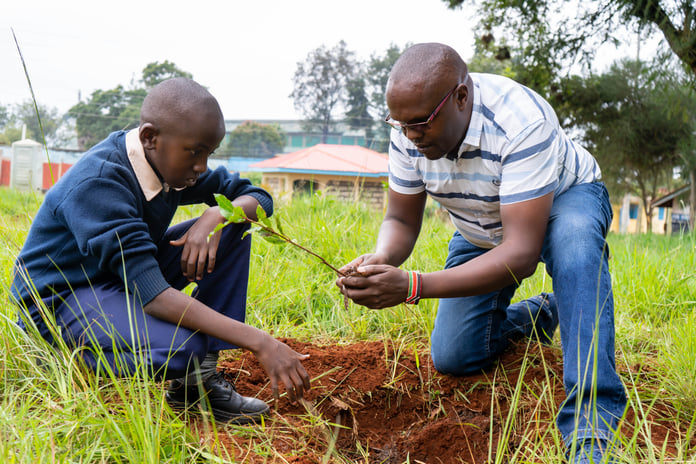 James Wachieni, participating in tree planting training, at the Kiangumba Primary school in Nyeri County.
James Wachieni, participating in tree planting training, at the Kiangumba Primary school in Nyeri County.
James Wachieni is pleased with the progress of the project and the positive response received from the schools and communities. The engagement of the younger generation and their role in spreading knowledge about sustainable living is a crucial step towards building a sustainable future. To be accredited under the esteemed Gold Standard and backed by third-party verification, the Stoves for Schools project demonstrates a strong commitment to long-term sustainability and positive community impact. After completion of the feasibility stage of the project, it will enter the development phase before listing, a point where it will be scaled up to its full capabilities.
Contact our team to learn how you can contribute to the project







